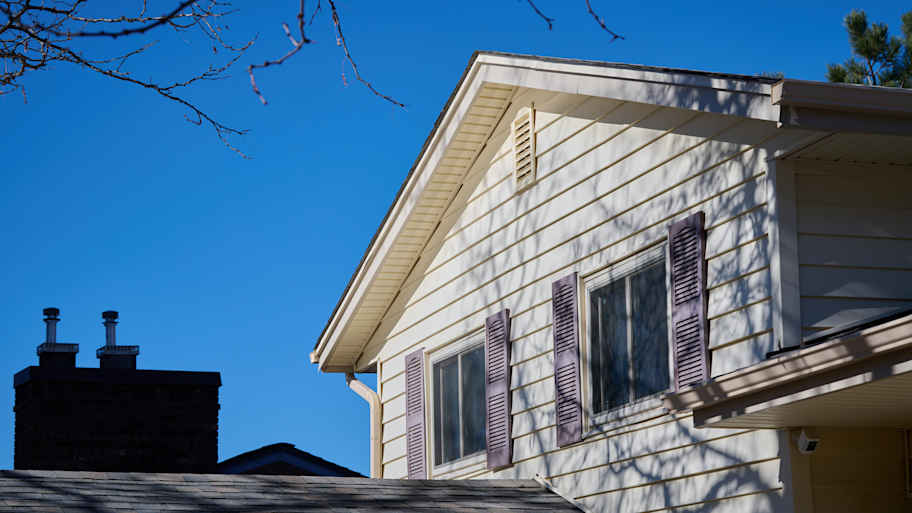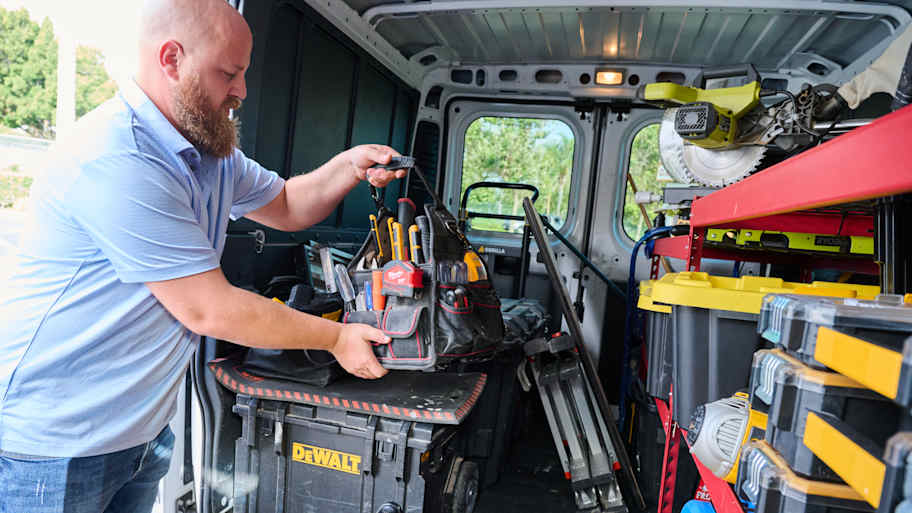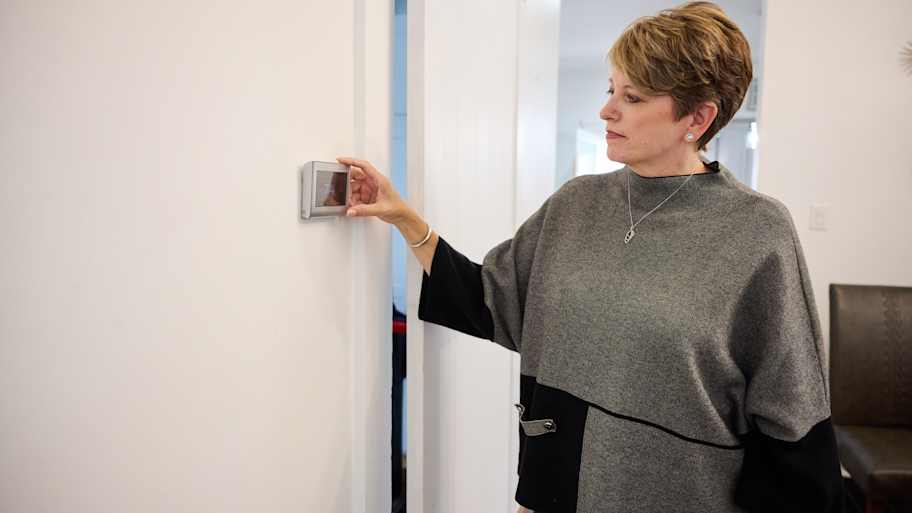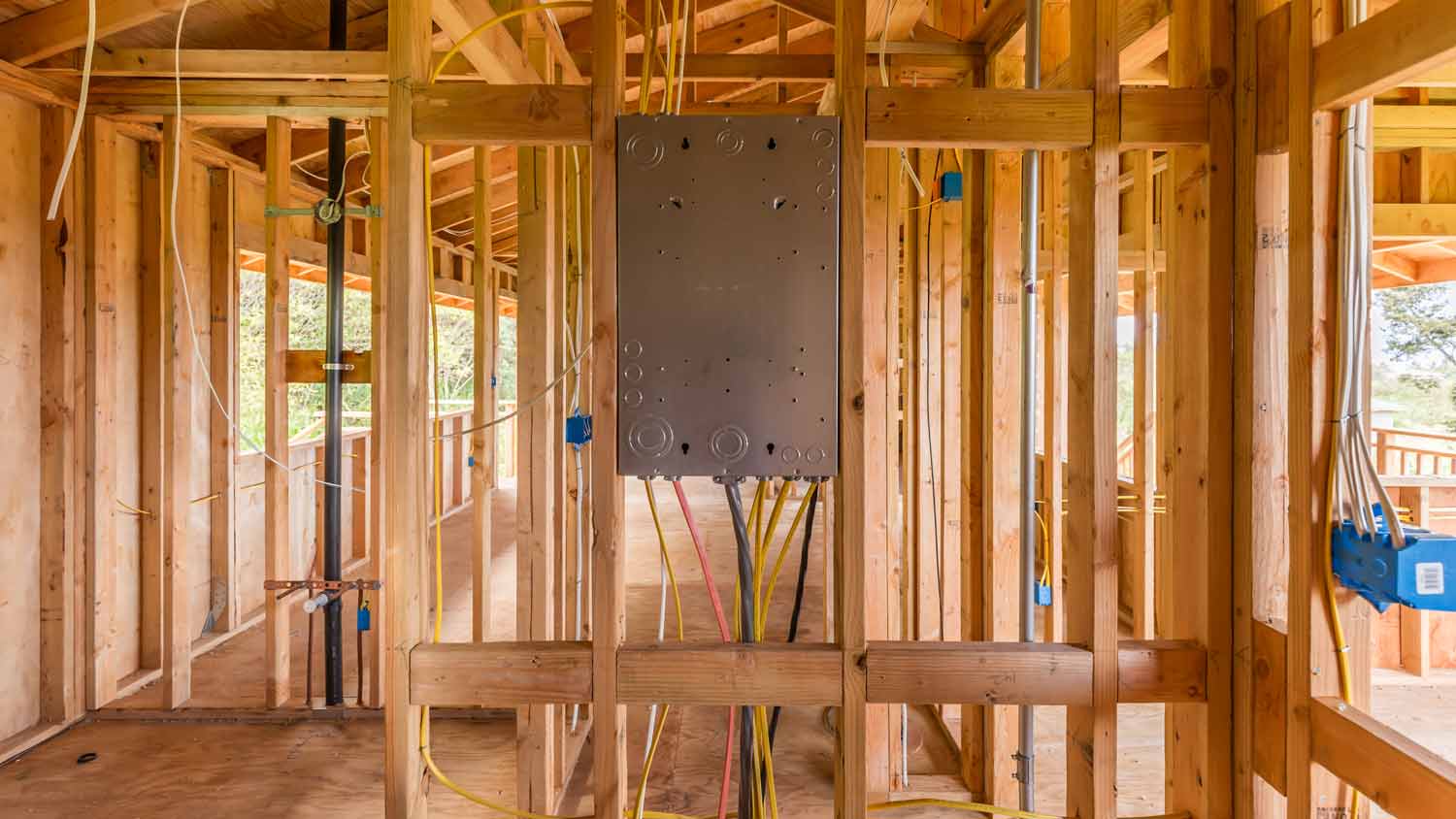What’s the Best Wire Size For a 200-Amp Service Panel?
Choose between copper and aluminum wires to upgrade your service panel


You’ll use 2/0 AWG copper or 4/0 AWG aluminum wiring.
Copper wiring is conductive, heat-resistant, and corrosion-resistant.
Aluminum wiring is cost-effective, easy to install, and conductive.
Factors that determine wire size include temperature, voltage drop, and distance.
When installing or upgrading to a 200-amp service, you’ll need to choose the right size wire for the job. Several factors will guide your decision-making on 200-amp service wire size, including local electrical codes, permits, and selecting the proper size wire for the best performance. Luckily, our guide will show you the best wire size for a 200-amp service.
What Wire Size Do I Need for 200-Amp Service?

If you plan to install or upgrade a 200-amp electrical service panel, you can choose between copper or aluminum/copper-clad wires and conductors. The National Electrical Code (NEC) requires a minimum of 2/0 AWG for copper wire or 4/0 AWG for aluminum or copper-clad wire. American Wire Gauge (AWG) is the standard for determining wire size and thickness—and a larger AWG number equates to a smaller wire diameter and gauge.
You'll need to consider wire strength and material when determining whether to use 2/0 AWG copper wire or 4/0 AWG aluminum or copper-clad wire. According to the NEC, these are the correct wire sizes for a 200-amp service:
| Service Rating (Amps) | Copper (AWG) | Aluminum or Copper-Clad (AWG) |
|---|---|---|
| 100 | 4 | 2 |
| 150 | 1 | 2/0 |
| 200 | 2/0 | 4/0 |
| 250 | 4/0 | 300 |
| 300 | 250 | 350 |
| 350 | 350 | 500 |
Copper Wire
Copper wire is more cost-prohibitive than aluminum or copper-clad wire. Still, it has many benefits, including corrosion and heat resistance. It’s also very malleable—so it bends easily. Copper is also highly conductive, meaning electricity travels quickly through copper wires with less voltage drop.
Aluminum
Aluminum and copper-clad aluminum wires are more cost-effective than copper. Aluminum also has many benefits, including being lightweight and a good conductor of electricity. Yet, aluminum doesn’t have the same longevity as copper.
Grounding Wire
You’ll need a 4 AWG copper wire or a 2 AWG aluminum wire for the grounding wire conductor. The conductor needs to run from the service panel directly to the ground—keeping your electrical system safe in the event of an electrical failure.
What Happens If I Don’t Use the Right Wire Size?

Upgrading to a 200-amp service requires three wires: two ungrounded hot wires and one grounded neutral conductor. The two ungrounded wires carry 120 volts of electricity, which feeds your panel 240 volts. If you don’t use the correct wire size, your electrical panel won’t get enough voltage to power your home.
When your 200-amp service is complete, you'll have a 2/0 AWG copper wire with a 4 AWG ground wire or a 4/0 AWG aluminum/copper-clad wire with a 2 AWG aluminum grounding wire. With 200-amp service, your panel can handle a higher electrical load—allowing you to run multiple appliances at once without interruption.
Factors That Determine Wire Size for 200-Amp Service
There are several factors that determine wire size for 200-amp service. The ambient temperature, voltage, and distance are among the top things to consider when choosing which wire size to use.
Ambient Temperature
The temperature where the wire is going to be installed should be considered when choosing the right size. Higher temperatures reduce the wire's ability to dissipate heat, which can lead to overheating. Wires contain a thermal rating, which indicates the maximum temperature at which they can operate safely. So, larger wire sizes are usually required for areas with high temperatures.
Voltage Drop
Another factor when determining size is voltage drop. If you don’t use the proper size and length of copper or aluminum wire, your voltage drop may exceed 3% (higher than the NEC recommends). If the voltage drops, you won’t be able to use your electrical service panel fully. So, to combat the drop, you’ll need to increase the wire gauge size, with copper needing a smaller gauge than aluminum due to its conductivity and heat resistance.
Distance
Distance plays a role in the performance of your electrical wires. You can choose between copper, aluminum, or copper-clad wires for short distances between the panel and the grounding wire (under 50 feet). However, if it’s a longer distance (over 100 feet) between the panel and the grounding wire, you should use a higher-gauge copper wire. Due to its high conductivity and heat resistance, copper won’t incur a high voltage drop.
Will 200-Amp Service Be Sufficient for My Home?
Most modern homes over 2,000 square feet utilize 200-amp panels because they have higher capacity and can fit additional circuits. This size is recommended for homeowners with a central heating and cooling system or multiple high-wattage appliances. Larger homes over 4,000 square feet with additional appliances typically require a 400-amp service.
A 200-amp service should be sufficient for most homes, but it’s best to hire an electrician near you to assess your current and future electrical needs and ensure you install the right size.
Cost to Install a 200-Amp Service Panel
The cost to install a 200-amp service panel ranges from $1,300 to $3,000 when upgrading from a 100- or 150-amp panel. If you’re installing a completely new panel, expect the cost to be somewhere between $1,800 and $2,500. Labor makes up most of this cost, and the panel itself costs about $250 to $350.
DIY vs. Hiring a Pro
This is not the type of home improvement project amateurs should attempt to DIY. Improper wiring can lead to a house fire, which will cost you significantly more than bringing in a pro to install your service panel. We always recommend hiring an electrician near you when upgrading an electrical panel. A professional electrician will understand the best-sized wires for your 200-amp service and how to adhere to local permits and electrical codes. Plus, it’s best to hire a professional electrician when servicing or upgrading your home’s electrical system due to its essential and hazardous nature.
Frequently Asked Questions
Most 200-amp service breakers can support 40 to 42 slots for single-pole breakers or 20 double-pole breakers. However, you should not use all of the breakers at the same time. Avoid using more than 160 amps worth of power at any given time to avoid overloading your 200-amp system.
Yes, you can use a 3/0 AWG wire for a 200 amp service, but only if it is made of copper, as 3/0 copper wire has an allowable ampacity of 225 amps. If you are using aluminum or aluminum copper-clad wire, you need to use at least 4/0 AWG.
Multiple wire sizes are used for residential electrical purposes. While the most common sizes used in homes are 14 and 12 gauge, some appliances, such as stoves, electric water heaters, central air units, etc., may use larger gauge wire to accommodate their larger amperage. Typically, larger appliances require 10-, 8-, or 6-gauge wires.



.jpg?impolicy=leadImage)

- Home Generator Repair
- Lamp Repair
- Electric Repair
- Generator Installation
- TV Antenna Services
- Emergency Electricians
- Commercial Electricians
- Attic Fan Installation
- Attic Fan Repair
- Exhaust Fan Installation
- Electric Inspectors
- Subcontractors
- Electrical Construction
- EV Charger Installer
- Chandelier Installation
- Doorbell Installation
- Bathroom Fan Installation
- Ring Installers
- Electrical Panel Upgrade










